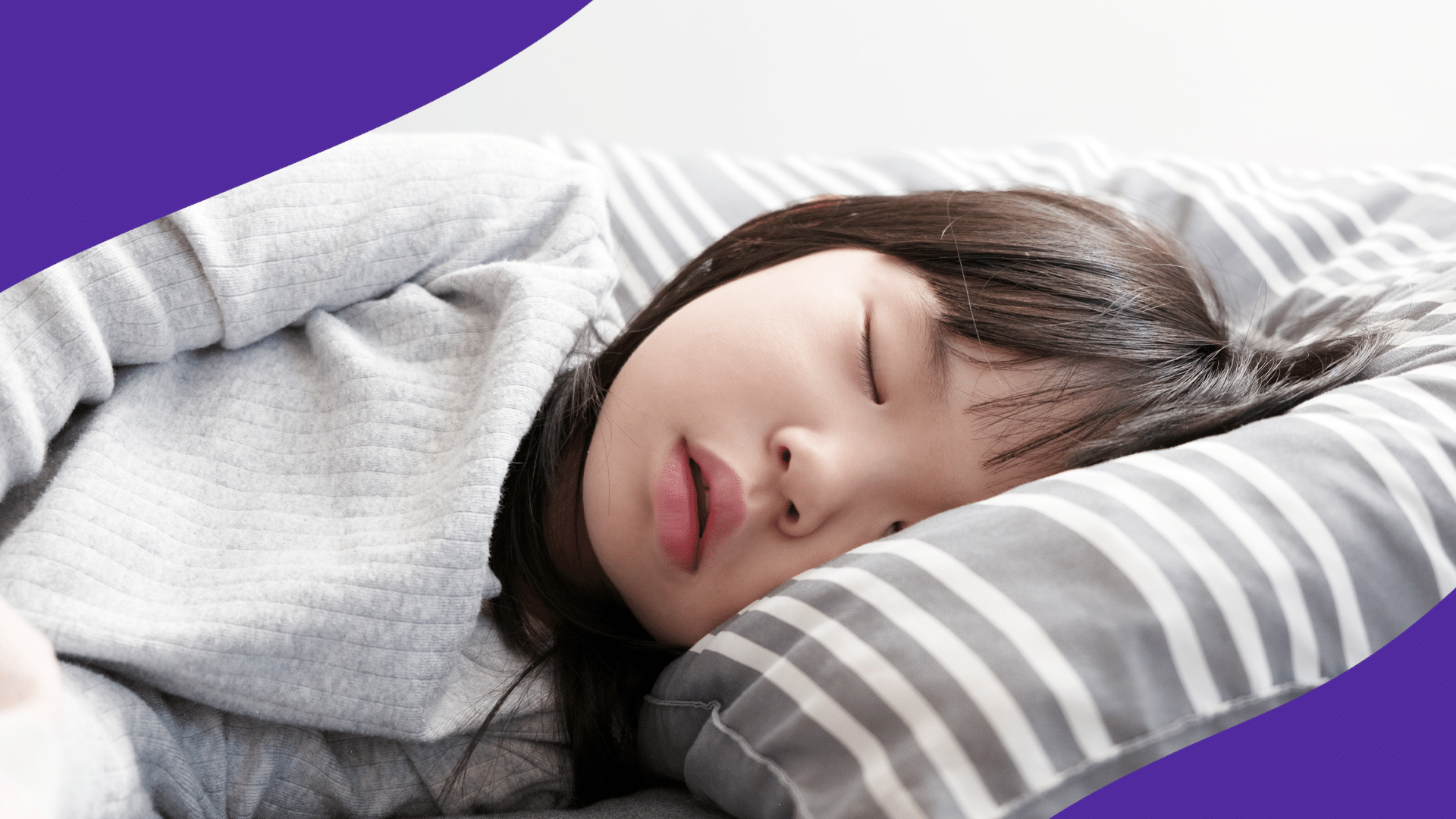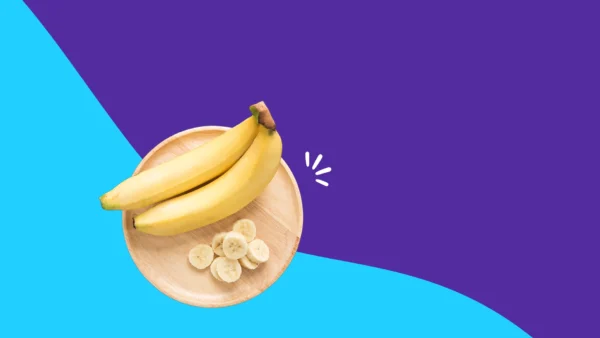It’s an age-old dilemma that nearly every parent struggles with: How do you make sure that kids are getting enough sleep? The National Institute of Child Health and Human Development recommends at least 11 hours of sleep each day (including naps) for toddlers, 10 hours for preschoolers, nine hours for kids ages 6 to 12, and eight hours for teens.
It may be difficult to hit those numbers for children, and many parents have turned to alternative remedies to help their kids establish good sleep habits. One of the most popular ones is melatonin dietary supplements—which evidence suggests may help kids fall asleep faster and get more sleep. Still, many people don’t know about the benefits and risks of melatonin for kids. So, before you give your child melatonin, here’s what you should know.
How does melatonin work for sleep?
Melatonin is a hormone that the pineal gland in your brain produces in response to darkness. Levels of melatonin rise at night and go down during the day. Melatonin helps your body regulate its circadian rhythm, the internal clock that controls your sleep/wake cycle, telling you when to go to sleep and when to wake up. As production of melatonin ramps up in the evening, your body transitions to preparing for a restful state. Research suggests that melatonin may play other important, non-sleep-related roles in the central nervous system, as well.
“Melatonin works as a signal for the body to prepare for sleep, making this hormone crucial in circadian regulation,” says Po-Chang Hsu, MD, a medical content expert at sleepingocean.com. “A synthetic melatonin supplement has the same role. It mimics the hormone’s sleep-inducing effect and can help kids fall asleep easier. The supplement may also help children maintain stable circadian rhythms and, consequently, sleep better.”
Melatonin produced by the pineal gland is called endogenous melatonin. Melatonin produced synthetically in laboratories, or exogenous melatonin, is the kind that is promoted as a dietary supplement, usually in the form of a pill, capsule, liquid, or—especially aimed at kids—a chewable gummy.
Is melatonin safe for kids?
Although it’s only available by prescription in many countries, melatonin can be purchased over the counter with no age restrictions in the United States. A study found that melatonin “seems to be safe,” but many experts agree that more research needs to be done on the subject.
“It’s important to remember that melatonin is not approved by the United States Food and Drug Administration (FDA) for use in children, and there is no standard recommended dose for melatonin in children,” says Kelly Johnson-Arbor, MD, a medical toxicologist and co-medical director of the National Capital Poison Center (poison.org).
Although few long-term studies on melatonin’s effects have been conducted, the consensus is that short-term melatonin supplementation is nontoxic at recommended dosages.
“Melatonin is not recommended for children under 3, as irregular sleep schedules are normal for this age,” Dr. Hsu says. “The supplement is generally considered safe and beneficial for children with insomnia and ADHD-related sleep issues, as chronic lack of sleep is far more dangerous (than melatonin). That being said, the long-term effects of melatonin, especially in otherwise healthy children, have not been studied well enough yet.”
Melatonin dosage for kids
As many as 50% of kids will experience a sleep problem. It’s estimated that up to 25% of American children and adolescents deal with insomnia, which can lead to a host of negative consequences, including irritability, fatigue, and poor performance in school. That number is even higher—up to 75%—in children with attention deficit hyperactivity disorder (ADHD), autism spectrum disorder, and other psychiatric or neurodevelopmental disorders. Children with these health conditions may benefit from melatonin supplements.
There are many products available now that are marketed as kids’ melatonin, but the strength of each supplement varies since there is no FDA-approved dosage of melatonin for kids. Melatonin pills and liquids can contain up to 60 milligrams of melatonin, but most supplements, in particular gummies, aren’t that strong. Melatonin gummies for kids generally contain anywhere from 1 to 10 milligrams of melatonin; it’s important to note how potent each gummy is before giving it to a child.
There are no official dosages for melatonin by FDA standards, but the American Academy of Pediatrics recommends starting with the smallest dose (0.5 or 1 milligram) and upping the dosage as needed. The dose of melatonin for kids with ADHD or insomnia can be higher but should not exceed 3 to 6 milligrams a night.
Recommended melatonin doses for children |
||
|---|---|---|
| Age | Starting dose | Maximum dose |
| Younger than 3 | Not recommended—Consult your child’s doctor before giving infants or toddlers melatonin | |
| 3 years or older | 0.5-1 mg of melatonin daily, 30-90 minutes before bed | 3-6 mg of melatonin daily, 30-90 minutes before bed |
Always talk to your pediatrician about the proper dosage before giving melatonin to your child. This is especially true if your child takes other medications, as melatonin’s potential interactions with other drugs aren’t fully understood yet. Melatonin should be taken 30 to 90 minutes before bedtime as part of healthy sleep habits. Melatonin supplements are not sleeping pills and are not a substitute for a good bedtime routine.
“Since many pediatric sleep disturbances are behavioral in origin,” says Dr. Johnson-Arbor, “adherence to good sleep hygiene principles, including use of a regular bedtime schedule and avoiding the use of electronic devices before bed, can also be beneficial in improving children’s sleep quality.”
RELATED: Melatonin dosage guide
Side effects of melatonin in kids
The use of melatonin is generally considered safe with mild and temporary side effects, if any. In some cases, kids taking melatonin have experienced the following side effects, which usually go away if the child stops taking melatonin.
- Headaches
- Drowsiness
- Irritability
- Increased bedwetting
- Nightmares
- Dizziness
- Mood changes
- Morning grogginess
- Daytime sleepiness
Safe alternatives to melatonin for children
The most important thing parents can do to help a child sleep better is to establish a consistent bedtime routine. Sticking with consistent bedtimes and wake-up times and a set routine before bed can help a child feel secure and comfortable, which typically leads to better sleep. In addition, try some of the following tips.
- Screen time should end at least an hour before bedtime. That means no TV, no computers, no tablets, and no smartphones. Blue light from device screens inhibits melatonin production, making it harder to sleep.
- Make sure that kids stay hydrated all day and don’t need a drink right before bedtime, to keep them from waking up at night to urinate. (Although many people swear by drinking warm milk before bed as a way to get better sleep.)
- Avoid snacks for two to three hours before bedtime, as digestion—especially of sugar or caffeine—can delay sleep onset.
- Make sure your child gets some exercise during the day. Physical exertion can increase the amount of time a child spends in deep sleep.
- Reduce illumination in your child’s room by hanging blackout curtains in the windows, using clocks that light up only when touched, or angling your child’s bed away from the door so they aren’t distracted by light seeping in around the cracks.
- For younger kids, reading them a bedtime story and making sure they have their favorite toy or blanket can help them fall asleep faster.
- A gentle massage or foot rub can help a child relax when it’s time to go to sleep.
- Encourage your child to try breathing exercises, affirmations, or even prayer as a way to de-stress at the end of the day.
- Incorporate aromatherapy with soothing scents. “Placing an aroma diffuser in the child’s room and using lavender essential oil can have a calming effect,” Dr. Hsu says. “Parents can also incorporate soothing lavender in the kid’s evening ritual (for instance, use lavender shower gel or body lotion before sleep).”
- Make sure your child is dressed for sleep in a way that will keep them warm enough in the winter or cool enough in the summer. Being too cold or too hot can lead to poorer sleep.
Other sleep aids for children
Talk to your pediatrician before trying any over-the-counter sleep aids for children, including melatonin. Not all sleep aids do what they claim to do, and some can have adverse side effects. The following are sleep aids sometimes recommended for some children:
- Diphenhydramine: Sold as Benadryl, Aleve PM, and other brands, this sedating antihistamine is often used to help kids sleep, but it’s not usually recommended by doctors as a sleep aid. Potential side effects include daytime drowsiness, dry mouth, blurred vision, constipation, and urinary retention.
- Doxylamine succinate: Sold as Unisom and other brands, this is another sedating antihistamine, with side effects similar to diphenhydramine. Doxylamine succinate should not be used to treat insomnia in children under 12.
- Valerian: Made from the root of a tall, flowering grassland plant, valerian supplements may help children fall asleep faster and get more restful sleep. As with melatonin, however, few long-term studies on valerian’s effects have been done, and there is no standard recommended dosage. Mild side effects may occur, including headache, dizziness, stomach problems, or sleeplessness.
When to see a pediatrician for sleep disorders in children
If you’ve established a good bedtime routine and instilled good sleep habits, and your child is still having trouble falling asleep or staying asleep, you should consider talking to your child’s healthcare provider about it.
“It’s better to see a doctor if the kid’s sleep issues are persistent,” says Dr. Hsu. “Other alarming signs might involve changes in breathing during sleep, nightmares, night terrors, persistent bed wettings, decreased daytime performance, trouble staying awake during the day, slackness, etc.”
A pediatrician or sleep expert can help diagnose and treat any underlying health issues that might be the cause of your child’s sleep problems. Many conditions can lead to sleep issues, including these common problems.
- Sleep apnea
- Sleepwalking
- Upper airway resistance syndrome
- Restless legs syndrome (RLS)
- Sleep terrors (night terrors)
- REM behavior disorder
- Stress
When sleep issues have a medical cause, treatment consists of identifying and treating the underlying condition. This can involve anything from using a CPAP (continuous positive airway pressure) machine to treat sleep apnea, to taking iron supplements for RLS, to therapy sessions with a child psychologist to see what emotional issues might be at play. In rare cases, a pediatrician might recommend minor surgery to treat snoring or sleep apnea.











